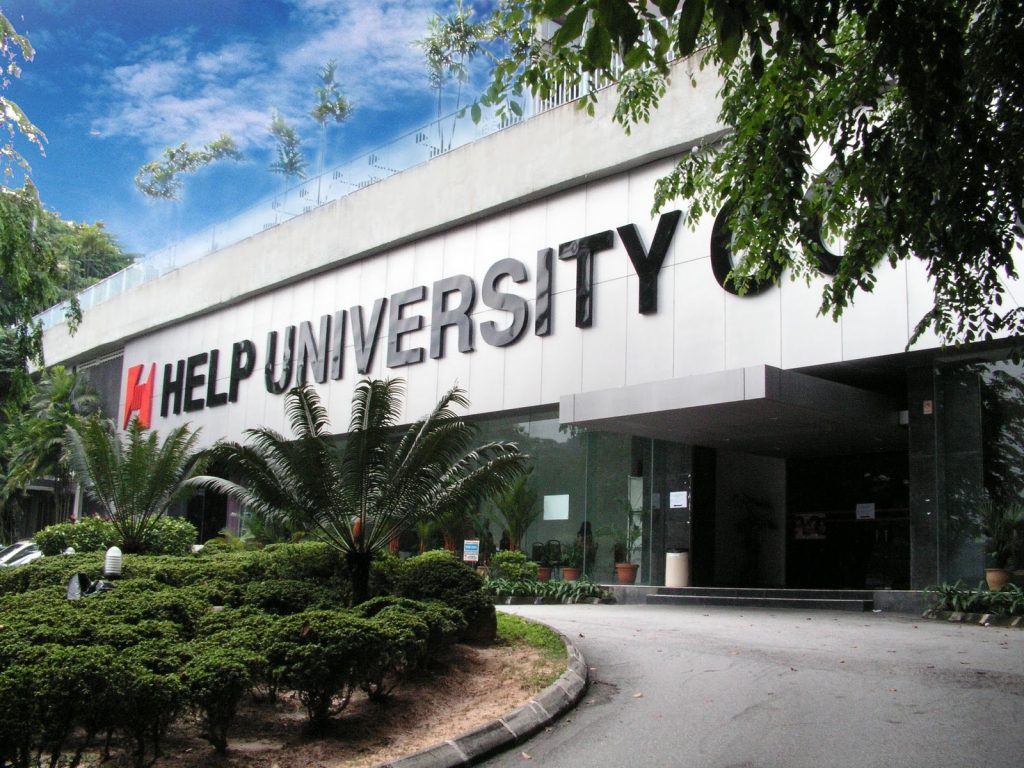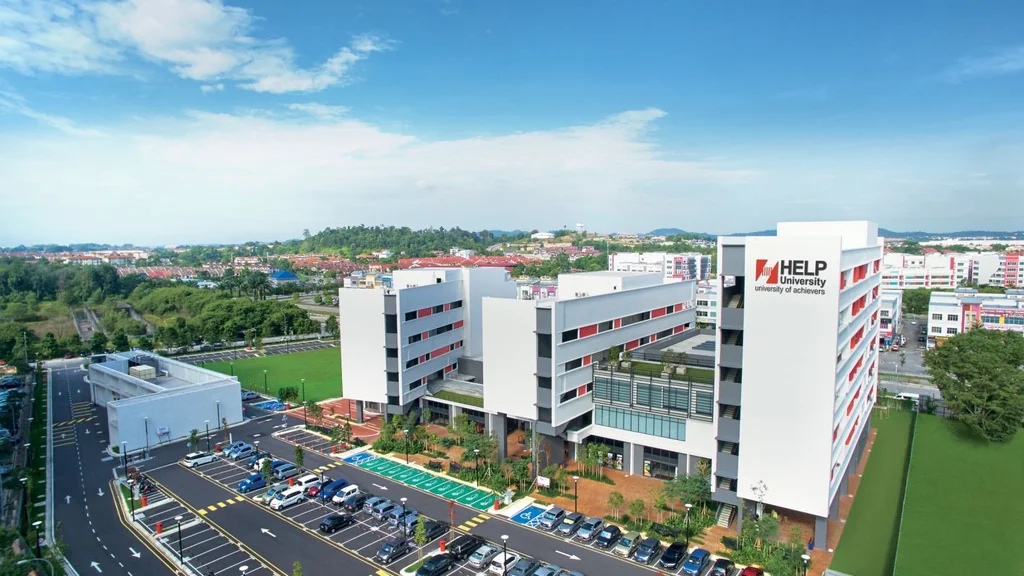Overview
the Diploma in Early Childhood Education (DECE) qualifies and certifies the Educator-Carer and gives them the necessary personal and professional identity when working with children, families and community. The DECE programme provides:
- A balanced preparation for work in any early childhood setting as a result of the 8-week workplace practicum and empirical-based course and fieldwork.
- Strong social and psychological understanding of the child
- Training to facilitates the successful development of the Educator-Carer.
- Promotes the creativity and talents of Educator-Carers across Early Childhood Care and Education (ECCE) settings and scenarios, such as in arts, music, drama and constructions.
Why study Diploma in Early Childhood Education at HELP?
-
We train students to be future entrepreneurs in the early childhood industry, equipping them with the relevant business skills and knowledge to set up businesses.
-
Our teaching team is a healthy mix of local and international lecturers with industry experience and those with research experience in education.
-
The classes are conducted via various teaching and learning styles such as blended learning, face-to-face tutorial, project-based learning, small and large group discussions, field trips, instructional games, and oral presentations.
-
The 21st century classrooms in HELP University are equipped with the latest hardware, software and a centralised control system, conducive for meaningful communication and collaboration.
Programme Overview
Structure
These are the subjects and electives that you will take as part of the programme.
Programme Details
The 30 months programme is a study of 27 courses listed, which can be done in two years in accordance with MQA approval.
- 18 Core Major
- 3 Elective Major
- 2 Free Elective
- 4 MQA – MPU Compulsory Subjects
Teaching-Learning Modes
Beside lectures and tutorials, classes are conducted in the learning laboratory. Fieldwork and empirical studies are carried out with children that highlight the importance of experiential engagement.
- Mastery of lesson planning that reflects appropriateness for differing ages.
- Trial-run lesson plans to evaluate appropriateness for the target children.
- Documentation of children’s learning progress along the developmental continuum.
- Ample opportunities to create and develop curriculum portfolio for each of the early childhood curriculum.
Year 1
- DECE1013 Teaching and Learning in Early Childhood Settings
- DECE1023 Child Development
- DECE1034 Children and Play
- DECE1044 Observation and Assessment of Young Children
- DECE1053 Academic English for Early Childhood Educators
- DECE1063 ICT and Multimedia
- DECE1074 Health, Safety and Nutrition for Young Children
- DECE1084 Visual Arts
- DECE1094 Music, Movement and Drama for Young Children
- DECE1104 Early Mathematics
- DECE1114 Social Studies and Environment
- DECE1124 Physical Education and Wellness
Year 2
- DECE2014 Language and Early Literacy
- DECE2024 Early Science and Technology
- DECE2033 Teaching Young Children BM (compulsory for Malaysian)
- DECE2043 Teaching Young Children English (for Non-Malaysian)
- DECE2053 Curriculum Planning and Program Development
- DECE2083 Introduction to Special Education
- DECE2133 Managing Early Childhood Settings
- DECE2144 Foundation of Early Childhood Business & Entrepreneurship
Elective 1: Select either 1
- DECE2063 Guiding Young Children’s Behaviours
- DECE2073 Environments in Early Childhood Setting
Elective 2: Select either 1
- DECE2113 Families and Community
- DECE2123 Ethics and Professionalism for Early Childhood Professional
Year 3
- DECE3013 Practicum I (TASKA)
- DECE3023 Practicum II (TADIKA)
MPU
MPU 1
Local Students (select either 1)
- MPU2183 Penghayatan Etika dan Peradaban
- MPU2193 Falsafah dan Isu Semasa
International Students
- MPU2133 Bahasa Melayu Komunikasi 1
MPU2/3
-
- MPU2213 Bahasa Kebangsaan A
*Local students without a Credit in SPM BM must attempt MPU2213
-
- MPU2313 Introduction to Malaysian Tourism
*Compulsory for local and international students
MPU4
Local and International Students (select either 1)
- MPU2412 Co-curriculum – Sports 1
- MPU2422 Co-curriculum – Community Service 1
General Elective
Local and International Students
-
- GEN2513 Communication 1
Note that all students must complete MPU 2 & 3 before attempting MPU 4
Assessment
To reflect the focus of the DECE programme on the education of the preschool teacher and edu-carer, the range of assessment modes reflects the aims of professional preparation and academic studies.
- Mid-Term Test
- Assignment
- Portfolio
- Journal
- Inquiry Report
- Practicum
You will need to fulfill one of these entry requirements to join the programme.
Entry Requirements
Applicants must have one of the following entry requirements:
SPM / SPMV / MCE
- At least 3 credits
Other equivalent qualification as approved by the Malaysian Qualification Agency (MQA)
CANDIDATES WITHOUT SPM OR MCE HAVE THE FOLLOWING OPTIONS WITH MQA APPROVAL
- SPM / MCE 2 credits AND
Teaching Experience 3 Years - SPM / MCE 1 credits AND
Teaching Experience 5 Years
CANDIDATES WITHOUT SPM OR MCE HAVE THE FOLLOWING OPTIONS WITH MQA APPROVAL
- Qualifying test on BM, English and Mathematics; i.e. the APEL Route created by MQA.2 credits AND
*Refer to MQA Current Status
Mature senior candidates with acceptable ECCE qualification, who fulfil the minimum requirements, are eligible to apply for advanced standing.
Here are the career pathways for graduates who complete the Diploma in Early Childhood Education programme. The graduates can further their studies and do a postgraduate degree to further unlock more career pathways.
Possible Career Pathways
- Preschool teacher
- Kindergarten teacher
- Nursery teacher
- School Administrator
- Daycare Educator
- Teaching Assistant
- Early Childhood Education Instructor
- Teacher’s Aide
- Nanny
- Childcare Provider
- Special Education Teacher
- School Counsellor
- Education Consultant














